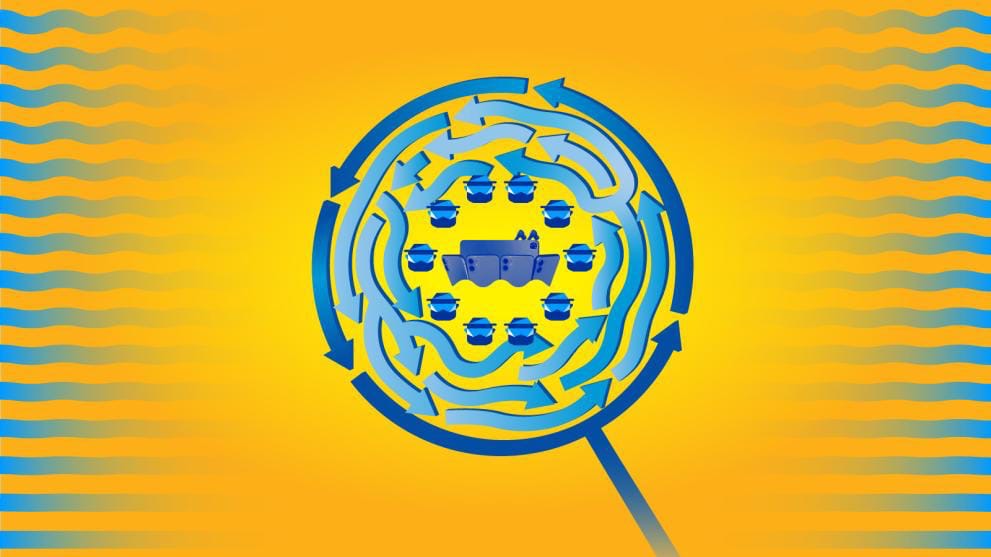Author: Federico Maria Lopena
Committee: Investigations and Activities Committe
Date: 12/07/2024
The “Operation Admiral” ranks among the most significant operational results of the European Public Prosecutor’s Office (EPPO) in the exercise of its institutional mandate and, more specifically, in the context of its criminal investigations.
Through this operation, the EPPO secured the indictment of 12 individuals and 15 companies in Portugal for a €2.2 billion VAT fraud in the consumer electronics sector. The fraud involved issuing invoices for non-existent transactions under the classic “carousel fraud” scheme. The charges, noting that this is still the preliminary investigation phase, and the presumption of innocence applies, include tax fraud, active and passive private corruption, money laundering, and criminal conspiracy.
This operation initially involved the Central Department for Tax Fraud Investigation of the Portuguese Tax and Customs Authority, the Portuguese Judicial Police, and the Portuguese National Republican Guard. It later expanded to a European and international scale, involving 33 EPPO offices and 30 national authorities across 30 countries: 16 EU member states and 14 non-EU countries (including the United Arab Emirates, Dubai, Seychelles, and Antigua and Barbuda).
The case began in April 2021, when the Portuguese tax authority in Coimbra was investigating a company selling mobile phones, tablets, headphones, and other electronic devices on suspicion of VAT fraud. From a national perspective, based on the administrative investigation carried out, the invoicing and tax declarations appeared formally in order. However, the Portuguese tax authority decided to report the situation to the EPPO as “worthy of further investigative scrutiny.” In line with its legal obligations, the EPPO initiated its criminal investigations in June 2021. European Public Prosecutor’s Office investigators, assisted by national investigative authorities and Europol, managed to conduct cross-border activities that demonstrated the existence of connections between the suspect company in Portugal and almost 9,000 other legal entities and over 600 individuals located in various European and non-European countries between 2016 and 2022, within which a criminal association carried out the most significant VAT carousel fraud detected to date.
As emphasized by EPPO Chief Prosecutor Dr. Laura Kövesi, the organizational effort made possible by the EPPO structure, which allows operations simultaneously in all adhering EU countries, was considerable. Indeed, on November 29, 2022, over 200 searches were conducted simultaneously in 14 member states.
European prosecutors, utilizing the EPPO’s central case management system, through access to national and European databases, and thanks to the support from the EPPO’s central office, Europol, and national law enforcement agencies, were able to design and implement a unified investigative strategy targeting an entire network of organized crime groups.
Additionally, beyond the total of 27 indictments, assets valued at approximately €59 million were identified and seized. These assets included 19 properties worth €46 million, as well as cash and bank deposits totaling around €9 million.
A piece of data that highlights the critical issues caused by this type of EU-wide fraud, which impacts European public revenues, is the annual report presented by the European Public Prosecutor’s Office (EPPO) concerning the year 2023. At the end of 2023, there were 1,927 active investigations (1,371 of which were opened in 2023), with estimated damages of over €19.2 billion. VAT fraud accounted for 17.5% of these, with estimated damages of €11.5 billion.
Furthermore, according to the latest Europol estimates, VAT carousel fraud, or Missing Trader Intra-Community (MTIC) fraud, is the most profitable crime in the EU, costing member states around €50 billion annually in tax losses. When this type of fraud reaches a level of complexity like that observed in Operation Admiral, it becomes nearly impossible to detect from a purely national perspective. What sets this carousel fraud apart is not merely the scale of the damage, but the extraordinary complexity of the network of involved companies. These ranges from seemingly legitimate suppliers of electronic devices to those requesting VAT refunds from national tax authorities while selling the devices online to individual customers. The proceeds from these sales are then channeled abroad, and the companies disappear, with others laundering the profits from this criminal activity.
These activities rely on the involvement of several highly skilled organized criminal groups, each playing a specific role in the overall scheme and operating transnationally with near-industrial precision, evading detection for years.
BIBLIOGRAFIA:
- https://www.eppo.europa.eu/en/media/news/first-indictment-investigation-admiral-12-suspects-and-15-companies-charged-massive-vat
- https://www.eppo.europa.eu/sites/default/files/2024-03/EPPO_Annual_Report_2023.pdf
- https://www.eppo.europa.eu/en/media/news/operation-admiral-eppo-uncovers-organised-crime-groups-responsible-vat-fraud-estimated
- https://www.fiscooggi.it/rubrica/dal-mondo/articolo/eppo-nuovo-report-della-procura-ue-presentati-risultati-e-attivita-del
- https://www.theportugalnews.com/it/notizia/2022-11-29/biggest-vat-fraud-scheme-in-the-eu-brought-down/72539
- https://www.steppo-eulaw.com/2024/01/16/operazione-admiral-eppo-ottiene-il-rinvio-a-giudizio-in-portogallo-di-12-persone-e-15-societa-per-una-frode-da-22-miliardi-di-euro-di-iva-evasa/


